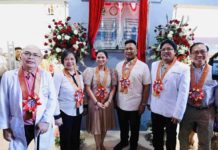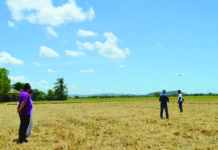
[av_one_full first min_height=” vertical_alignment=” space=” custom_margin=” margin=’0px’ padding=’0px’ border=” border_color=” radius=’0px’ background_color=” src=” background_position=’top left’ background_repeat=’no-repeat’ animation=”]
[av_heading heading=’What it means to be free’ tag=’h3′ style=’blockquote modern-quote’ size=” subheading_active=’subheading_below’ subheading_size=’15’ padding=’10’ color=” custom_font=”]
BY ROEYNA MAY FAMISARAN
[/av_heading]
[av_textblock size=” font_color=” color=”]
Monday, June 12, 2017
[/av_textblock]
[av_textblock size=” font_color=” color=”]
THE Philippines had been ruled over by various countries — Spain, United States, Japan. Too many nations were interested in this archipelago rich in natural resources. Its modern culture even has obvious influences from Spaniards, Americans, Chinese, Japanese, and British people.
For hundreds of decades, our ancestors fought for freedom. Too many sacrificed their lives for patriotism and loyalty. But after all those years, is the Philippines now truly free?
Dr. Rey Carlo Gonzales, a History instructor at the University of the Philippines Visayas, shares with Panay News what he believes it means to be free these days.
***
LIVING UP TO ASPIRATIONS
To be free is to live up to the aspirations of our predecessors. We have long reached a point in our history where we have taken for granted the kind of freedom the likes of Rizal and Bonifacio could only dream of.
To fully appreciate the value of freedom, one has to understand what it means to be deprived of it. Throw a man in solitary confinement for years and when he’s free, he will guard that newfound freedom with much more vigilance and responsibility.
There were episodes in history considered as periods of “imprisonment” — colonization under Spain and the United States, occupation under the Japanese, and martial law. Does this generation of Filipinos need to undergo similar experiences to understand what has been articulated time and time again?
IMPORTANCE OF JUNE 12
Most students are aware of the significance of Independence Day.
Like any national holiday or celebration, Independence Day is a ritual. I try to explain it to my students from a constructivist perspective — meaning, Independence Day is something designed to commemorate a moment in history to instill the values attributed to that event on present-day Filipinos.
[/av_textblock]
[/av_one_full][av_image src=’http://www.panaynews.net/wp-content/uploads/2017/06/FREEDOM2.jpg’ attachment=’108645′ attachment_size=’full’ align=’center’ styling=” hover=” link=” target=” caption=’yes’ font_size=” appearance=’on-hover’ overlay_opacity=’0.4′ overlay_color=’#000000′ overlay_text_color=’#ffffff’ animation=’no-animation’]
“If our National Heroes died for the Philippines to be run by Filipinos, have we lived up to their expectations?” In this Nov. 17, 2016 photo, students of Santa Barbara National Comprehensive High School reenact the “Cry of Santa Barbara,” which marked the establishment of the Revolutionary Government of the Visayas led by General Martin Delgado on Nov. 17, 1898. IAN PAUL CORDERO/PN
[/av_image]
[av_textblock size=” font_color=” color=”]
I push my students a little further: Why not adopt a mind-set where every day is Independence Day? Why not challenge yourself every day to work toward realizing the goals of our predecessors?
Moreover, the idea of a “Filipino nation” has evolved since Emilio Aguinaldo first waved the Philippine flag. Contexts of freedom and slavery changed over time as well. Today our national struggles are different. Now the question is: How do you live your life in such a way that carries the nation forward?
PROTECTING FREEDOM
“It’s easy to be willing to die for one’s nation, but can we think for the nation?” The late senator Lorenzo Tañada once said something to that effect.
Thinking for the nation is needed to preserve our freedom and national unity. But the harder job is to preserve the nation by exercising its philosophical premise every day — obey the laws; exercise your right to vote; criticize flawed practices and offer solutions to make life better; and, most difficult of all, treat strangers as part of the community.
If you want to protect our freedom, live responsibly. Our ancestors already did most of the hard work. The least we can do to honor their sacrifices is to handle their gift of freedom responsibly.
ARE WE TRULY FREE?
The definition of freedom is open-ended, free-flowing, constantly evolving. To answer this question, we need to understand what kind of freedom we mean.
If we mean the ability for self-determination, yes. If we mean the absence of foreign occupation, yes, we are freer than those who lived during the world wars. If we mean free speech, yes, we are freer than those who lived during the Marcos martial law.
But the more pressing question is: What have we done with that freedom? If our National Heroes died for the Philippines to be run by Filipinos, have we lived up to their expectations? What kind of leaders have we freely chosen to lead us? What kind “truths” do the media bombard us with? What activities have we freely chosen to do in our spare time? Have we freely chosen to give up on ourselves and leave the country for greener pastures? Finally, if Jose Rizal were to time-travel to your neighborhood as you read this, how do you think he would react to what he sees?
Freedom is always only the first step. What you do with it is the more important second step. (Answers were edited for clarity and space. — Ed.)/PN
[/av_textblock]



